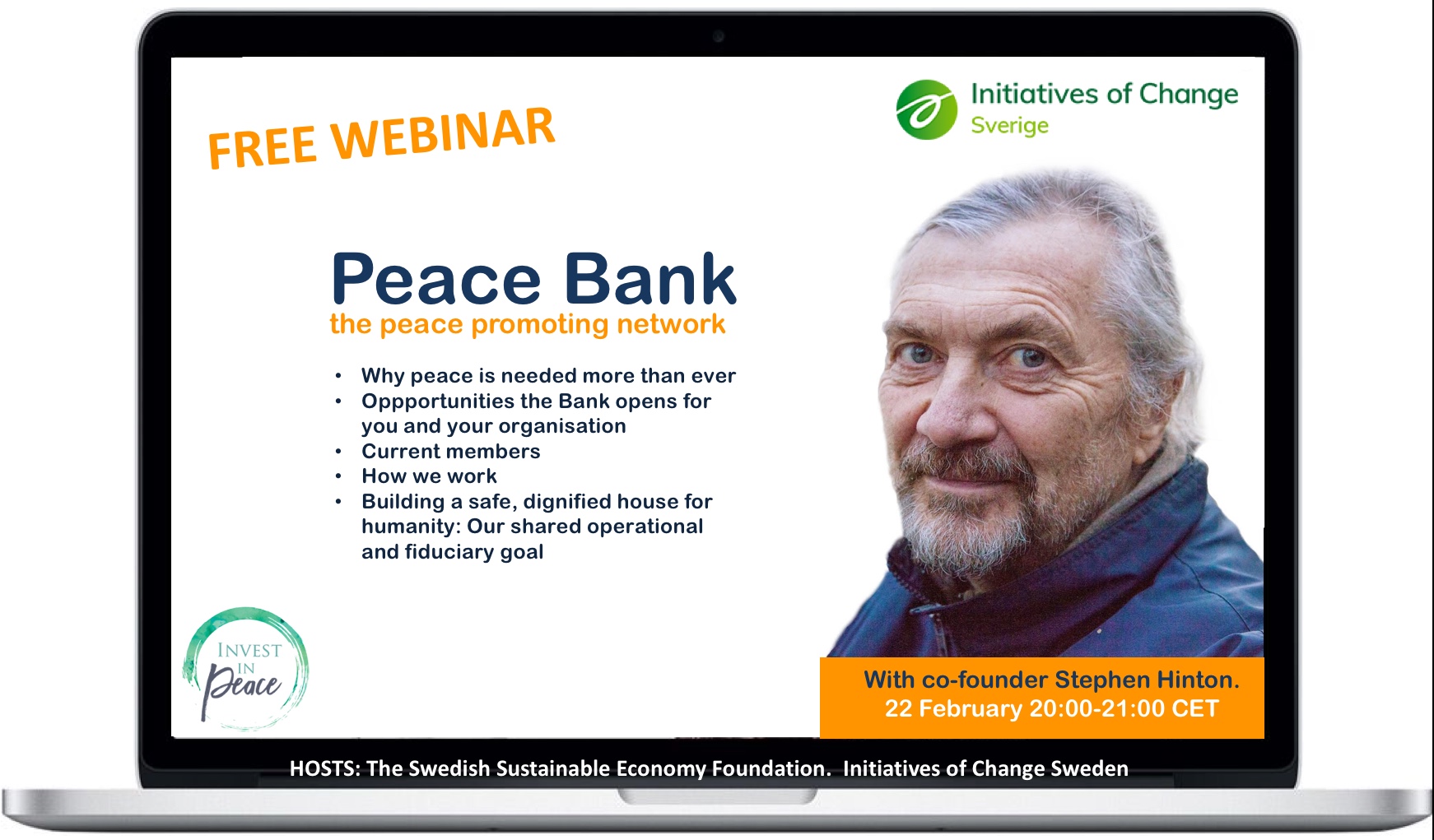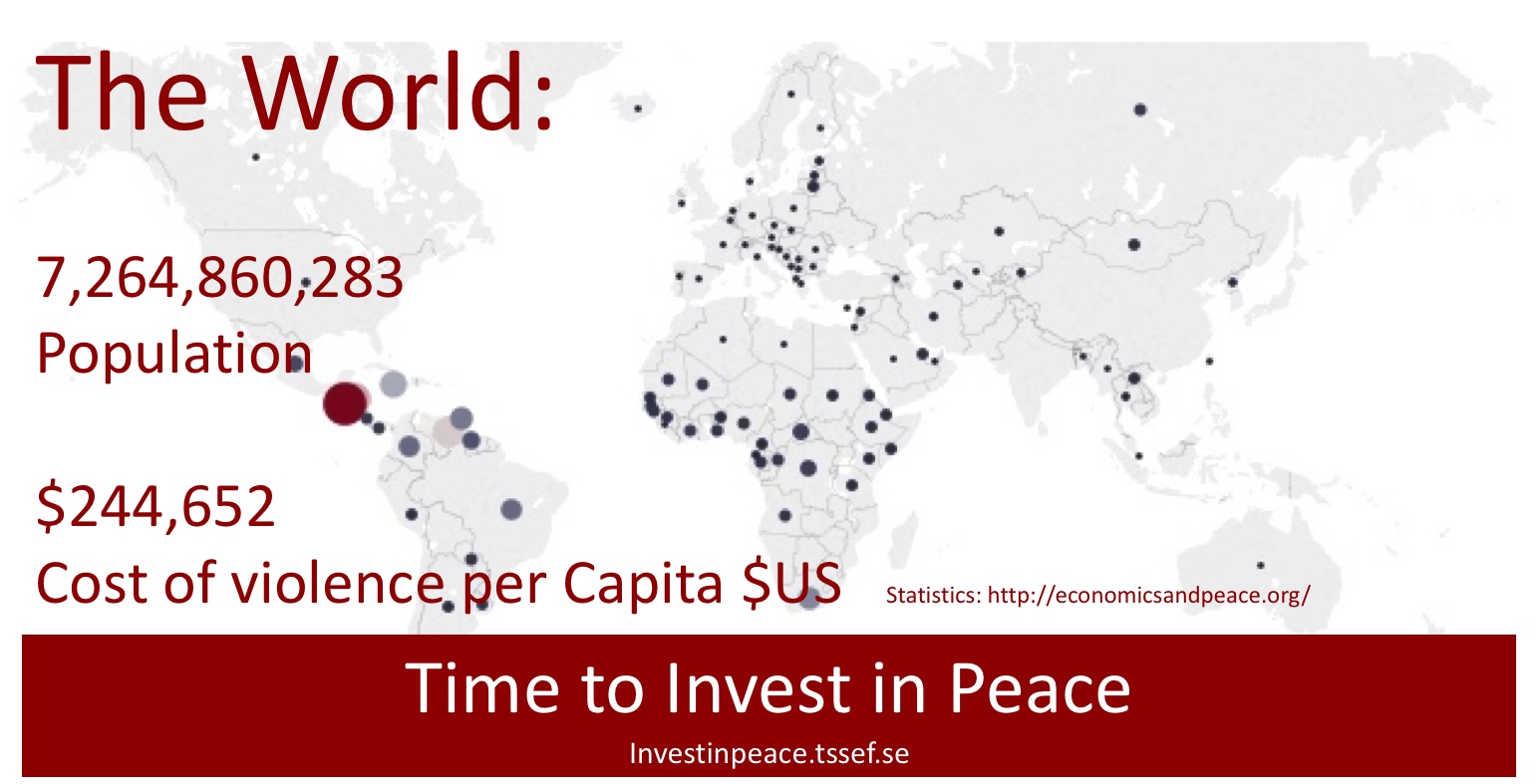
Invest in Peace will be participating in the TIP event presenting among other things, the Peace Café workshop, the amazing results of Peace Education Program in prisons and the Peace Bank. Join us there! Learn more via this link.

Invest in Peace will be participating in the TIP event presenting among other things, the Peace Café workshop, the amazing results of Peace Education Program in prisons and the Peace Bank. Join us there! Learn more via this link.
The funnel concept, introduced by Karl-Henrik Robert Founder of the Swedish Natural Step, explains how increasing pressure on resources reduces the options of future generations to maintain a standard of living. Stress like that on populations radically increases conflict and undermines peaceful societies. In the diagram below, the width of the funnel represents the opportunities to continue society’s per capita resource usage. The depth of the funnel represents time. Continue reading
Globalization has caused inequality. And inequality is one of the causes of conflicts and ill-health, both undermining peace. Yet global inequality is diminishing according to the general narrative. Jason Hickel points out how this is not true and lays out the structural causes of inequality and gives us suggestions to change it.

Date: 22 February 2018
Time: 20:00 -21:00 CET
Host: Invest in Peace http://investinpeace.tssef.se
Theme: Introducing the Peace Bank network
Objectives: To share in depth the opportunities that the network offers for you and your organisation
Replay: Follow this link Continue reading
Meet NAS Daily – a video channel exploring peace between people.

2017 saw the publication of Doughnut Economics- a model for keeping within planetary boundaries AND meeting social needs. Keeping within boundaries requires practices to go from extractive to regenerative. We share links on doughnut economics, reflect that it is 150 years since the publication of Capital volume 1 by Karl Marx, and offer our observation that signals we are detecting show that peace wanted to make a come-back, going hand in hand with regenerative economic approaches. Popping up in different places, the awareness seemed to be growing of the good sense in designing economic policies that incentivize taking care of Earth and putting peace first. Indeed, Doughnut economics, by insisting economics must remove suffering, and other signals on the importance of restoring land to support livelihoods not industrial practices all point towards peace economics. Continue reading
We get into conflict. It is natural. When we create conflict or end up in conflict, it is because we, humanity, have the capability for conflict. On the other hand, we also have the capability to resolve the conflict. Conflict is the end result of a process. It must be possible to reverse that process – and go from conflict back to peace. For everything begins with peace. It’s from peace we come and it’s towards peace we want to go. It is in our nature. Our natural state is peace. Continue reading
 Goal 16 – the ‘Peace Goal’ – is part of the Sustainable Development Goal framework. It is an important recognition that peace is essential for development, as much as development is essential to peace. However, having a goal is only the first step. We need to ensure that Goal 16 is measured, and that concrete steps are taken towards its achievement all the while holding Governments to account.
Goal 16 – the ‘Peace Goal’ – is part of the Sustainable Development Goal framework. It is an important recognition that peace is essential for development, as much as development is essential to peace. However, having a goal is only the first step. We need to ensure that Goal 16 is measured, and that concrete steps are taken towards its achievement all the while holding Governments to account.
This is the task taken on by Peace Bank member the Institute for Economics and Peace. Their Goal 16 Progress Report presents a detailed analysis of available data to measure the goal and its targets. It also measures progress achieved to date, country by country. Findings highlight the major challenges facing Goal 16, including methodological issues, political challenges, as well as practical implementation issues around data collection and statistical capacity that if not addressed may undermine the achievement of the goal.